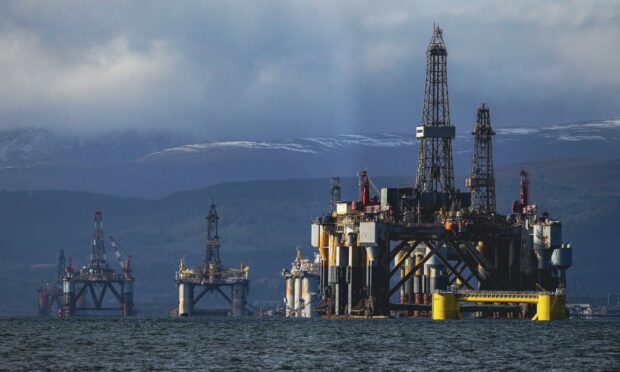An Aberdeen business boss has criticised the Scottish Government for taking a stance against increasing North Sea production in the wake of the energy crisis.
Speaking in the Scottish Parliament on Thursday, First Minister Nicola Sturgeon said such a move would not be a “practically deliverable solution”, as it would take too long to see the benefits.
Instead, she said the government would “make sure that we are accelerating that transition to renewable and low-carbon energy”, calling it the solution to the reliance on Russian oil and gas in the medium to long-term and the responsible action to take in the face of climate change.
But Ryan Crighton, the policy director at Aberdeen and Grampian Chamber of Commerce, has said renewable energy has not been generated at a pace to fill the gap caused by the decline in UK oil and gas production.
The former P&J business editor told the BBC’s Good Morning Scotland programme: “We now have two options: we either produce more domestically with full control over the regulatory environment in which it is extracted, or we import an increasing amount of our energy with a heavier carbon toll that shipping it from other parts of the world carries.
“The latter makes little economic sense, and even less environmental sense.
“Nobody wants to alter the direction of travel here, net zero is where we want to get to, and the oil and gas industry is committed to that, but this is a 25-year transition so now is not the time to be ideological.
“It’s a time to be practical and it’s a time to be realistic.”
New reserves on stream ‘within six months’
Mr Crighton said existing oil rigs could potentially tap into “marginal reservoirs” that are part of larger fields, and that have now become viable due to the increased price per barrel of oil.
Such reservoirs, he said, could be drilled and brought on stream “within six months”.
He said: “It doesn’t seem like the Ukraine crisis or its effects will have gone away within six months – most predict that the energy supply crisis will have worsened by then, and costs will have gone up further.
“Traders already are talking about $200 a barrel oil.
“Whole-sea subsea developments in the North Sea could take two years to bring into production, but sadly that may well be in the lifespan of this current crisis too.”
Russia’s actions ‘only serve to highlight’ need for transition
The Scottish Government said analysis was underway to better understand the country’s energy requirements but insisted Russia’s actions only amplify the need to move to renewables.
A spokesman said: “The Scottish Government’s position is clear that unlimited extraction of fossil fuels is not consistent with our climate obligations and we call again on the UK Government, who have the power to act in this instance, to urgently re-assess all approved oil licenses where drilling has not yet commenced against our climate commitments.
“We are currently undertaking analysis work to better understand Scotland’s energy requirements as we transition to net zero, ensuring an approach that supports and protects our energy security and our highly skilled workforce whilst meeting our climate obligations.
“Recent actions by Russia only serve to highlight the importance of accelerating the transition to renewable energy sources. In Scotland, the equivalent of nearly 100% of our electricity demand already comes from renewable sources and we are focused on reducing energy demand while accelerating the deployment of renewable energy, with plans for a 10-fold increase in installed offshore wind capacity – enough to power more than eight million homes – and to more than double the country’s onshore wind capacity by 2030.
“We are already investing in the oil and gas sector’s net zero transformation. In addition to our expanded, £75million Energy Transition Fund and £100million Green Jobs Fund, our £500,illion Just Transition Fund – which we have called on the UK Government multiple times to match – will support the north east and Moray become one of Scotland’s centres of excellence for the transition to a net zero economy, with our investment supporting transformation across the region.”

